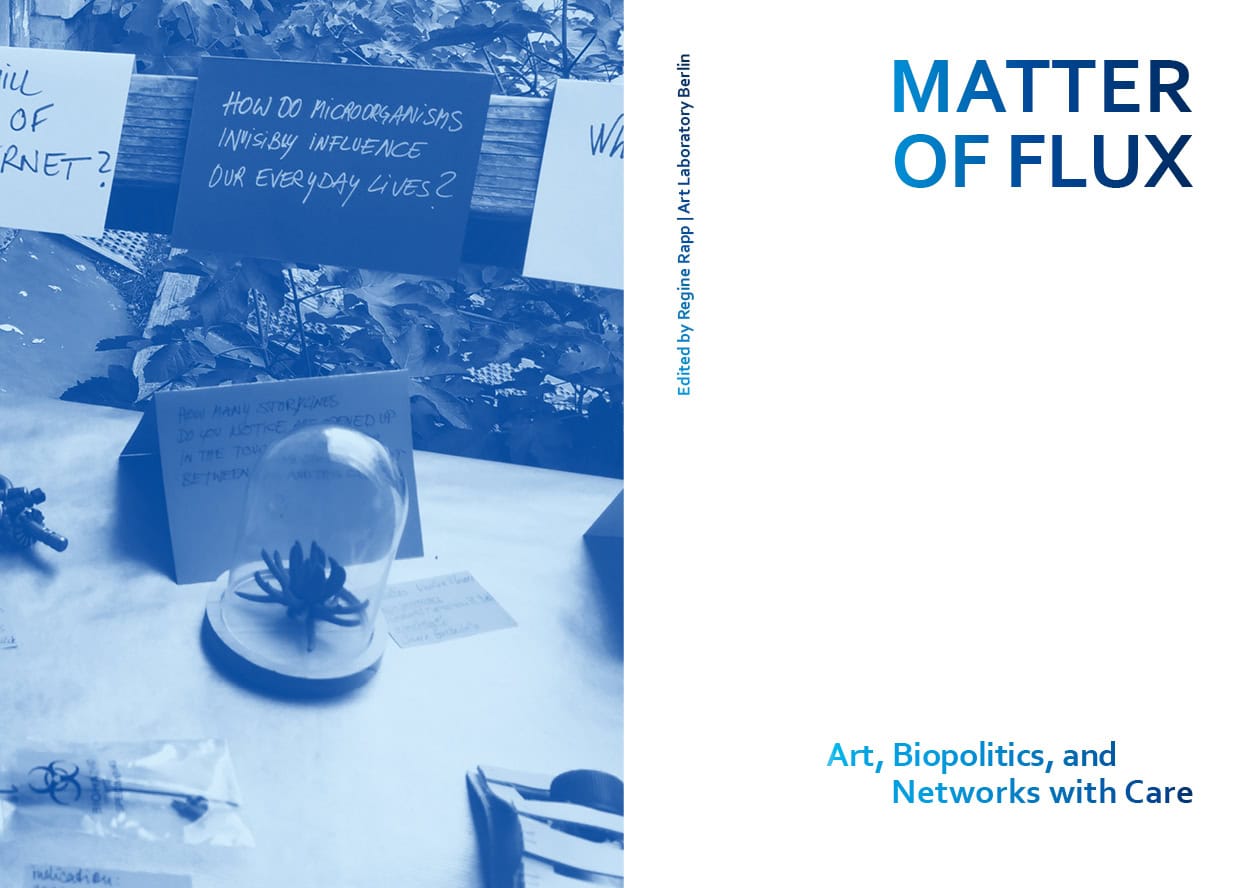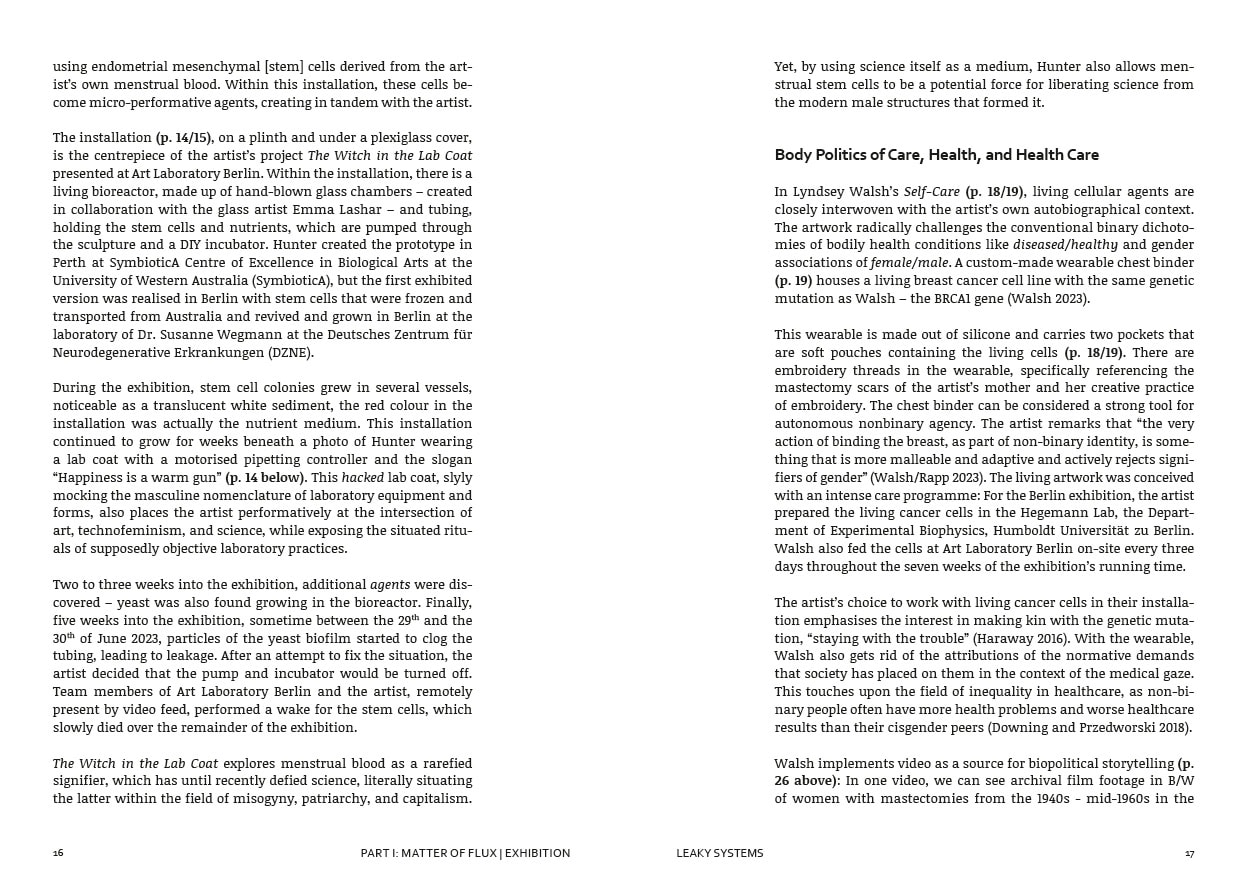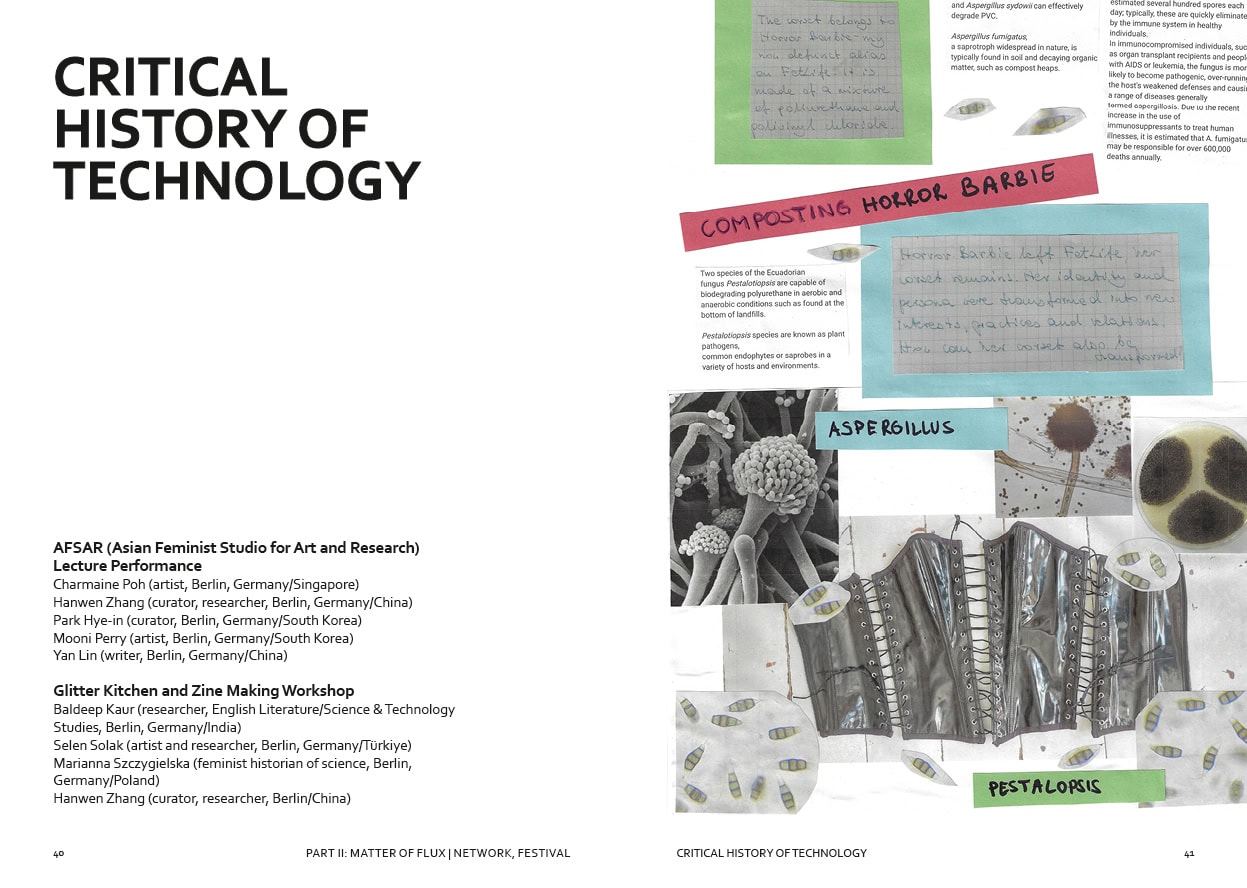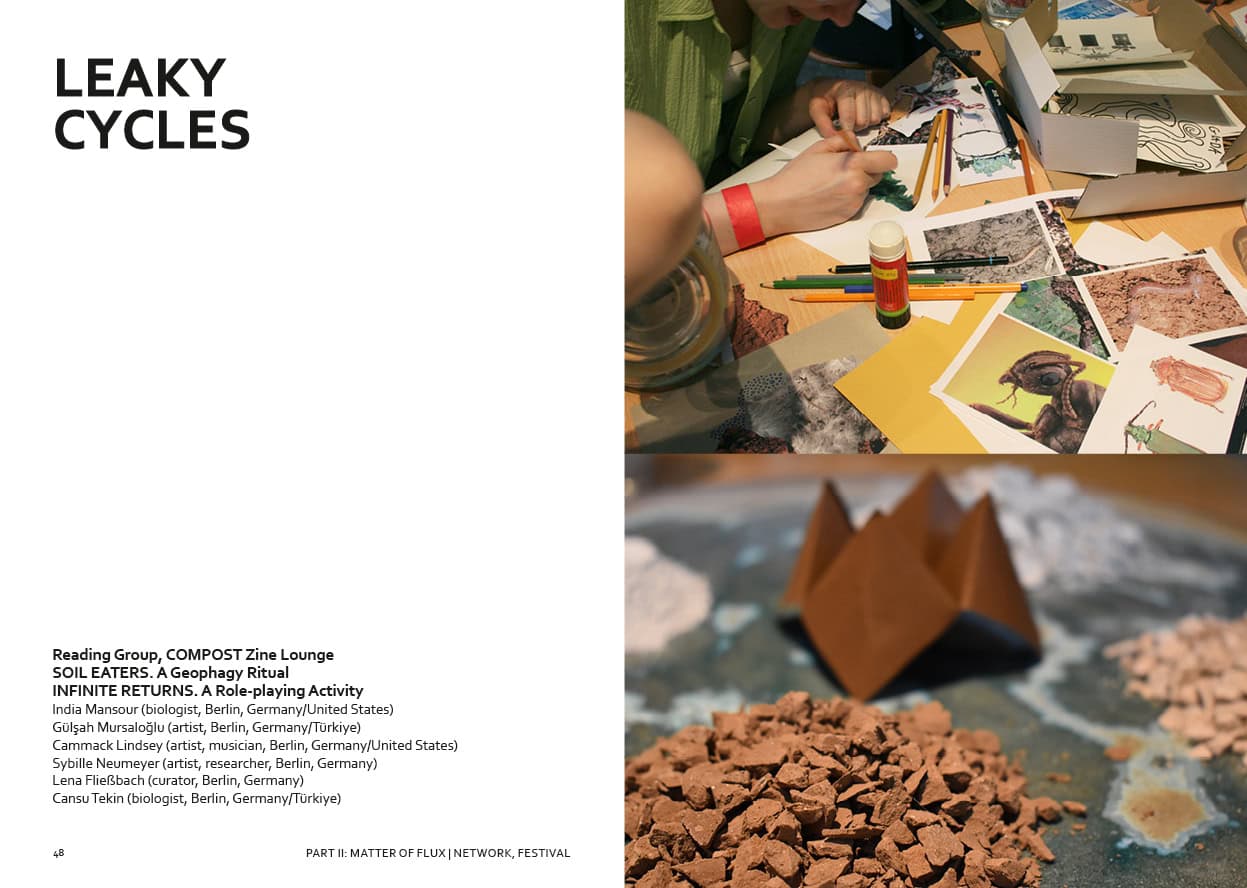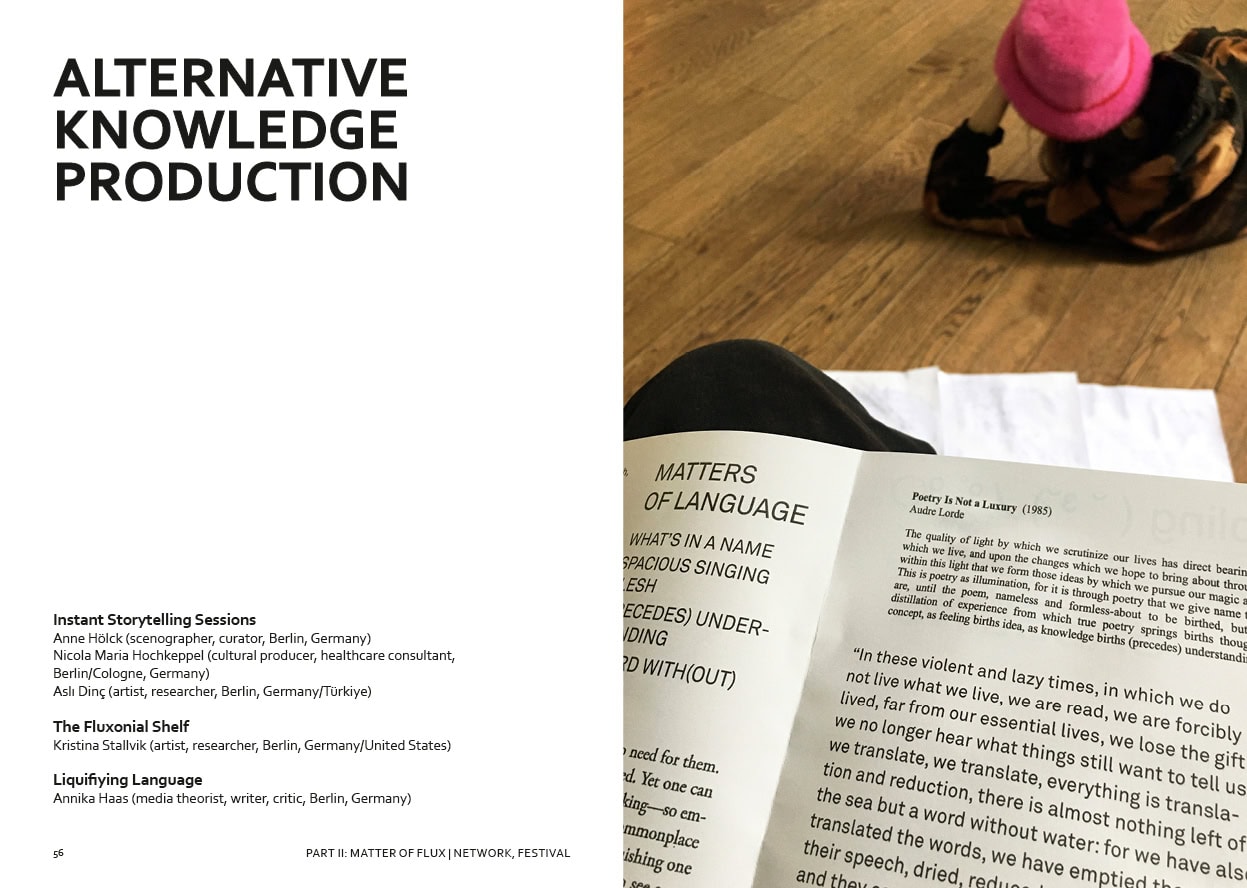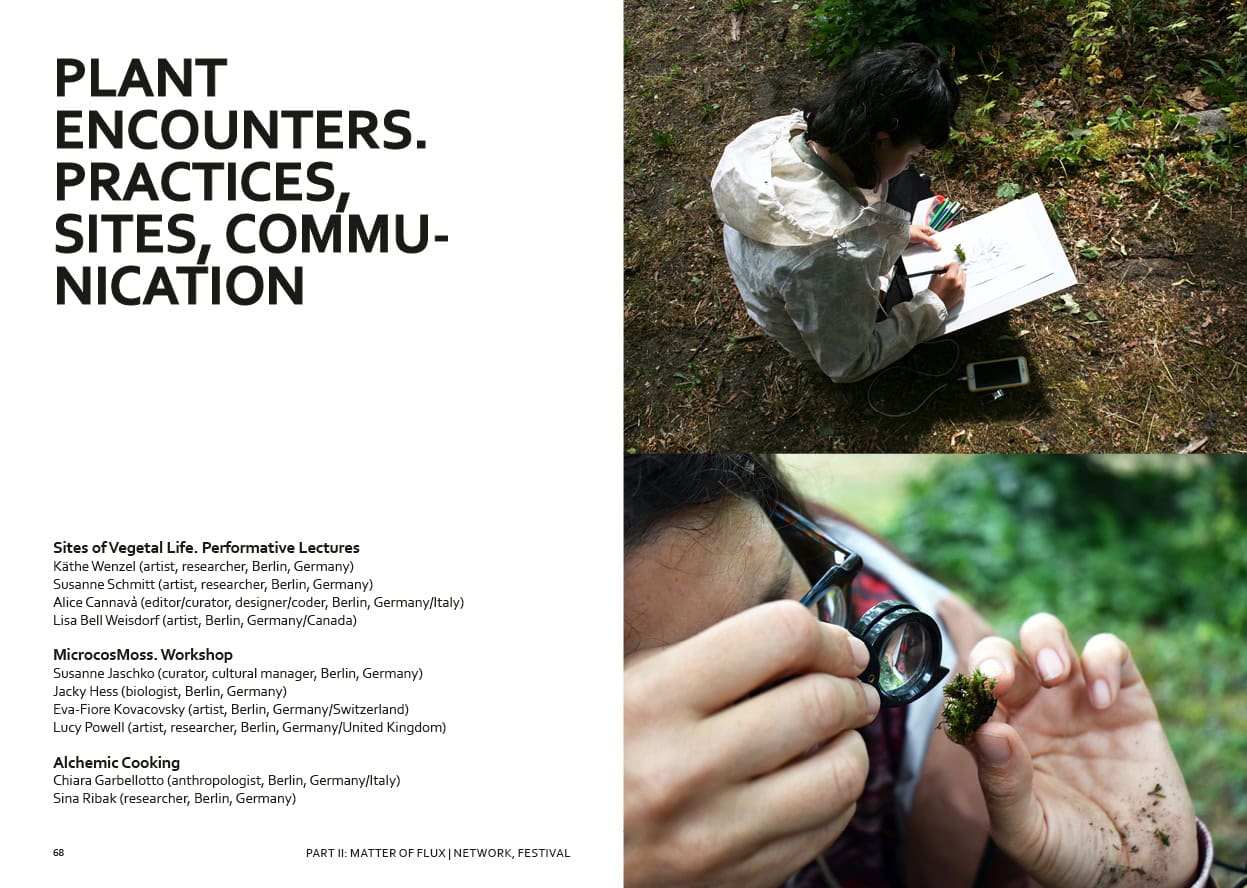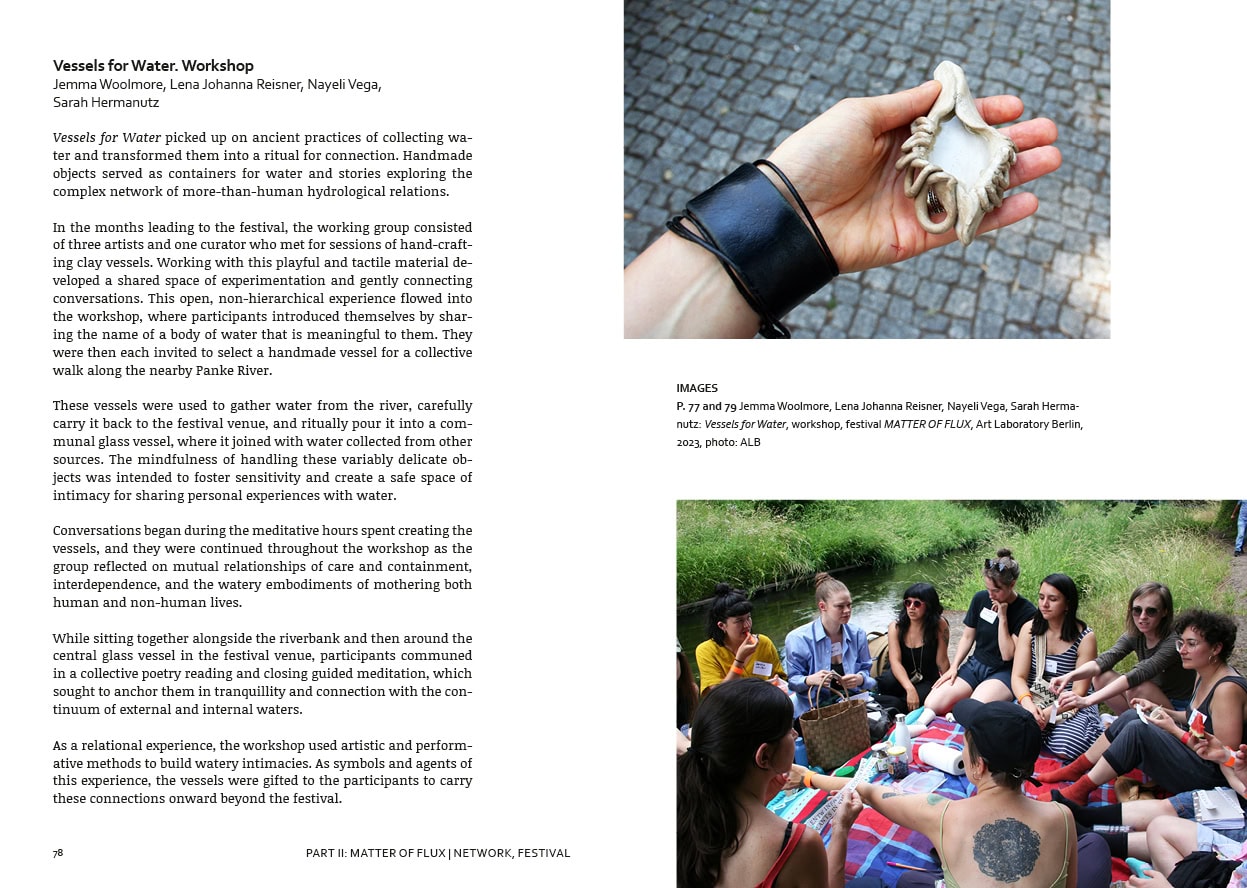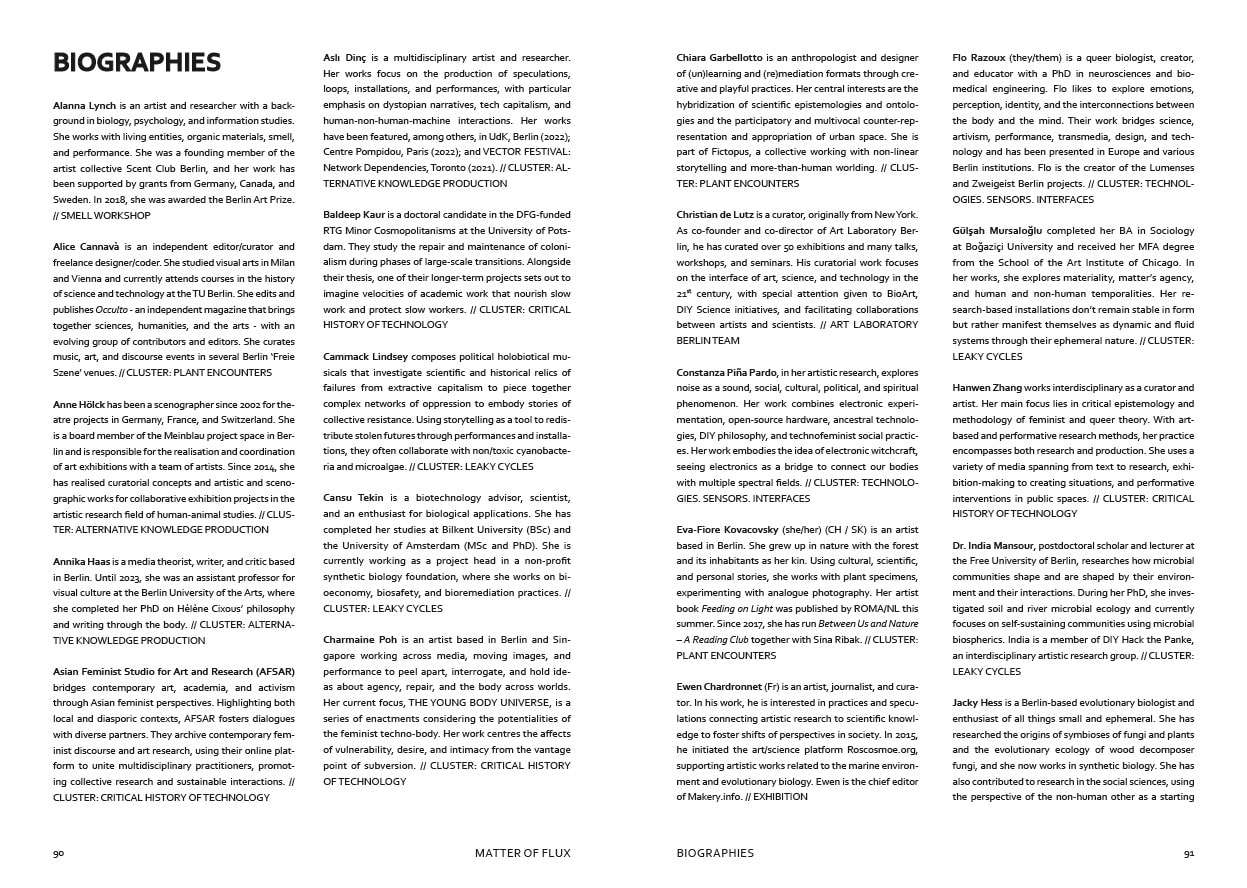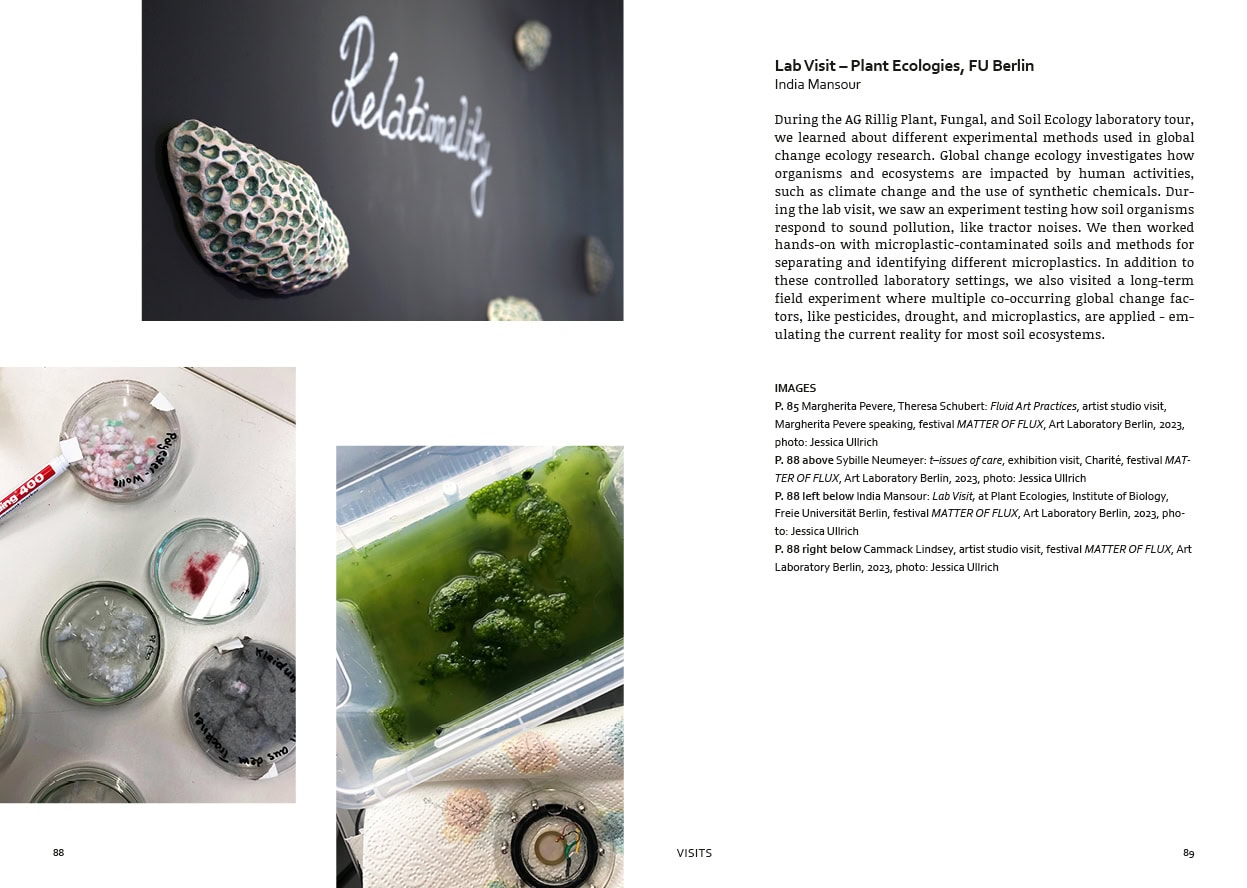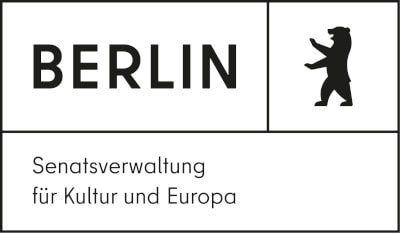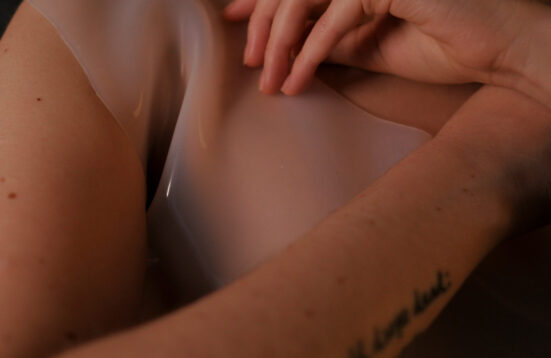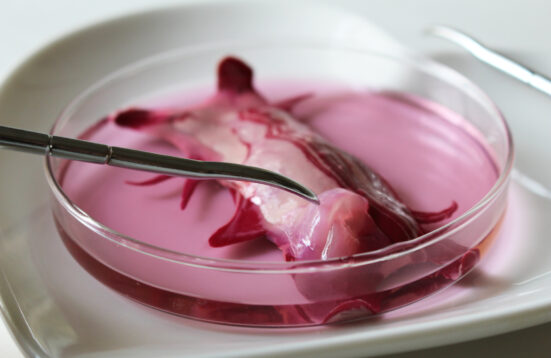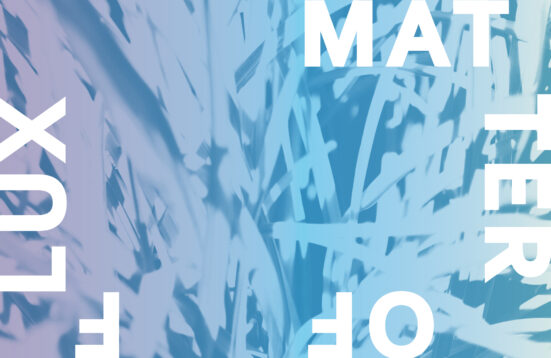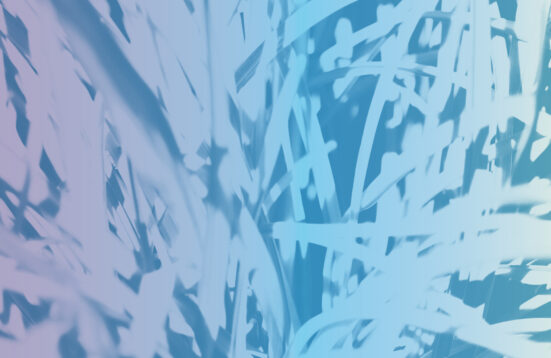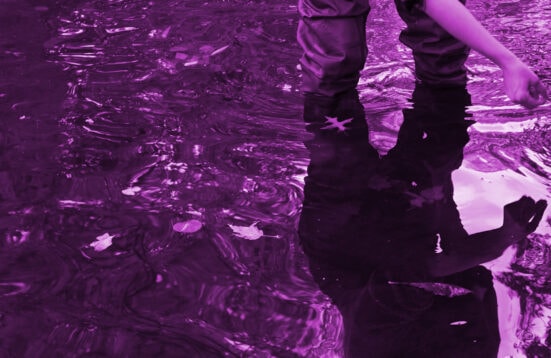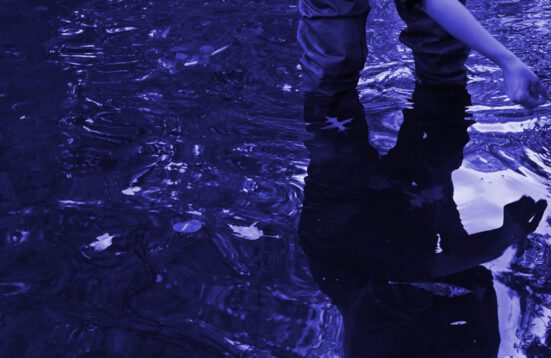MATTER OF FLUX
Art, Biopolitics, and Networks with Care
Book Publication | Art Laboratory Berlin
This publication presents a sustainable insight into the research project MATTER OF FLUX at Art Laboratory Berlin. It is a part of a group exhibition on art, body biopolitics, and feminist technoscience, as well as a network and a festival from and for international Berlin-based FLINTA* in art, science, and technology.
The book assembles essays and statements along with documentation in text and images by around 50 authors whose many fields of expertise create the polyphonic ground of MATTER OF FLUX: art, design, filmmaking, curatorial practice, dramaturgy, music, art history, media theory, anthropology, philosophy, sociology, feminist history of science, microbiology, plant ecology, biotechnology, neuroscience, and physical science.
MATTER OF FLUX is a unique project that combines micro views on the cellular level with macro perspectives on more-than-human ecologies. The project is based upon the careful network creation of research hives.
CONTRIBUTIONS BY
Alanna Lynch · Alice Cannavà · Anne Hölck · Annika Haas · Asian Feminist Studio for Art and Research (AFSAR) · Aslı Dinç · Baldeep Kaur · Cammack Lindsey · Cansu Tekin · Charmaine Poh · Chiara Garbellotto · Christian de Lutz · Constanza Piña Pardo · Eva-Fiore Kovacovsky · Ewen Chardronnet · Flo Razoux · Gülşah Mursaloğlu · Hanwen Zhang · India Mansour · Jacky Hess · Jemma Woolmore · Käthe Wenzel · Karolina Żyniewicz · Kristina Stallvik · Lena Fließbach · Lena Johanna Reisner · Lisa Bell Weisdorf · Lucy Powell · Lyndsey Walsh · Margherita Pevere · Marianna Szczygielska · Mooni Perry · Moonwen · Nayeli Vega · Nicol Rivera Aro · Nicola Maria Hochkeppel · pamela varela · Park Hye-in · Regine Rapp · Sarah Hermanutz · Selen Solak · Shu Lea Cheang · Sina Ribak · Susanne Jaschko · Susanne Schmitt · Sybille Neumeyer · Theresa Schubert · Tuçe Erel · WhiteFeather Hunter · Yan Lin.
TABLE OF CONTENTS
PART I: MATTER OF FLUX. EXHIBITION
LEAKY SYSTEMS. On Current Artistic Research about Body and Biopolitics | Regine Rapp, Tuçe Erel, Christian de Lutz
ARTISTS’ STATEMENTS
The Discomfort of the Pseudomenstruating Technoscientific Body | WhiteFeather Hunter
Self-Care | Lyndsey Walsh
Unborn0x9 | Shu Lea Cheang, Ewen Chardronnet
PART II: MATTER OF FLUX. NETWORK, FESTIVAL
RE_SITUATING KNOWLEDGES. A Conversation about Building Networks and Collectively Preparing a Festival | Tuçe Erel, Karolina Żyniewicz, Regine Rapp
CRITICAL HISTORY OF TECHNOLOGY
AFSAR (Asian Feminist Studio for Art and Research). Lecture Performance | Charmaine Poh, Hanwen Zhang,Park Hye-in, Mooni Perry, Yan Lin
Glitter Kitchen and Zine Making Workshop | Baldeep Kaur, Selen Solak, Marianna Szczygielska, Hanwen Zhang
LEAKY CYCLES
Clay Eating, Earthly Matters: The Reading Session, Compost Zine Lounge, Infinite Returns – A Roleplaying Game | India Mansour, Gülşah Mursaloğlu, Cammack Lindsey, Sybille Neumeyer, Lena Fließbach, Cansu Tekin
ALTERNATIVE KNOWLEDGE PRODUCTION
Instant Storytelling Sessions | Anne Hölck, Nicola Maria Hochkeppel, Aslı Dinç
The Fluxional Shelf | Kristina Stallvik
Liquifying Language. Workshop | Annika Haas
TECHNOLOGIES. SENSORS. INTERFACES
Octopussyntric. Workshop, Performance | Constanza Piña Pardo, Flo Razoux, Nicol Rivera Aro, pamela varela
PLANT ENCOUNTERS. PRACTICES, SITES, COMMUNICATION
Sites of Vegetal Life. Performative Lectures | Käthe Wenzel, Susanne Schmitt, Alice Cannavà, Lisa Bell Weisdorf
MicrocosMoss. Workshop | Susanne Jaschko, Jacky Hess, Eva-Fiore Kovacovsky, Lucy Powell
Alchemic Cooking | Chiara Garbellotto, Sina Ribak
HYDRO-RELATIONS
Vessels for Water. Workshop | Jemma Woolmore, Lena Johanna Reisner, Nayeli Vega, Sarah Hermanutz
CONJURING STENCH
Smell Workshop | Lyndsey Walsh, Alanna Lynch
VISITS
Fluid, Leaky Art Practices – A Studio Visit | Margherita Pevere, Theresa Schubert
Artist Studio Visit | Cammack Lindsey
Exhibition Visit – “t–issues of care” | Sybille Neumeyer
Lab Visit – Plant Ecologies, FU Berlin | India Mansour
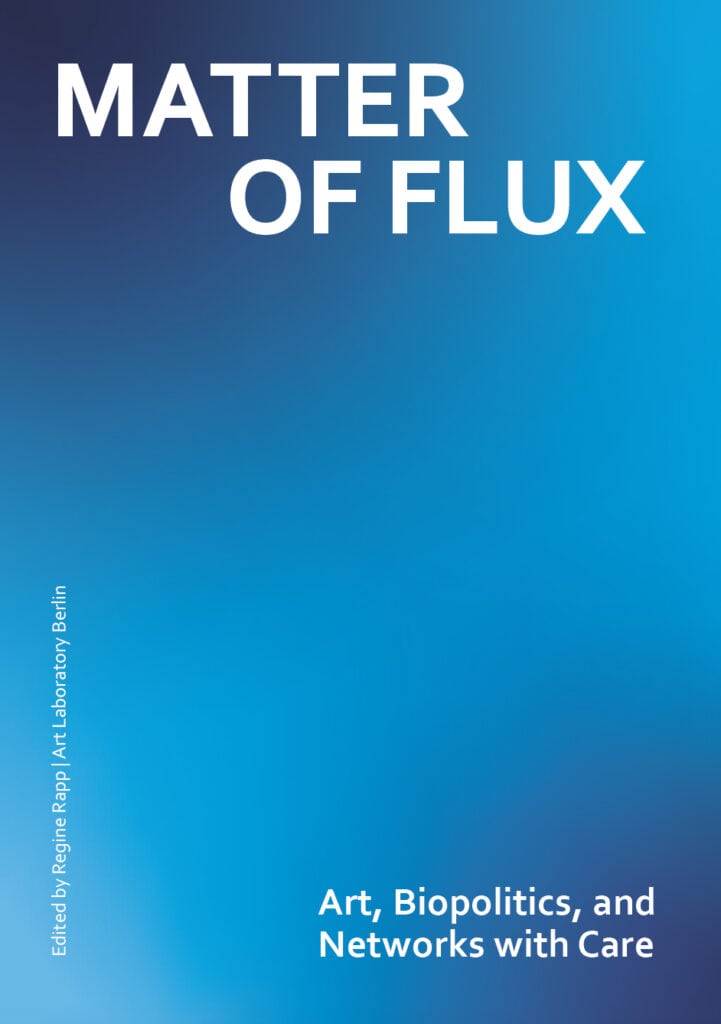
INTRODUCTION (p. 6 – 8)
This publication is a concentrated presentation of the research project MATTER OF FLUX that Art Laboratory Berlin (ALB) initiated in 2023. It included a group exhibition featuring artworks about bodies, biopolitics, and forms of care and expanded to the building of an extensive cooperative network of Berlin-based FLINTA* artists, scholars, and scientists (FLINTA* stands for female, lesbian, intersex, nonbinary, trans, and agender). Network members worked together to create the MATTER OF FLUX festival in the early summer of 2023.
In PART I: MATTER OF FLUX | EXHIBITION, Christian de Lutz, Tuçe Erel, and I take our curatorial research as a basis for a theoretical in-depth reflection on current artistic research connected to the body and biopolitics through three artistic positions. In our essay, we critically follow the artists’ frameworks on female and nonbinary bodies and their matter, nature, and health. WhiteFeather Hunter created a living artwork from her own menstrual stem cells that questions the patriarchal preconceptions of medical biology. Lyndsey Walsh developed a programme of care for potentially cancerous cells in a wearable while exploring the genetic inheritance of breast cancer in their family. Shu Lea Cheang with Ewen Chardronnet examined the biopolitics of pregnancy in the age of technological capitalism. More reflections about these concepts also resonate in the texts written by all the exhibiting artists.
The larger part of the book, PART II: MATTER OF FLUX | NETWORK, FESTIVAL, is dedicated to a condensed presentation of the evolving FLINTA* network and the festival MATTER OF FLUX. During several network meetings in the winter and spring of 2023, Art Laboratory Berlin brought together a large part of the Berlin-based FLINTA* scene in art, science, and technology. From this extensive pool of colleagues, a group of around 40 participants collectively developed a festival programme. Serendipity and radical openness were the motors that led the many network participants to shape the festival’s unique panel discussions, performative lectures, reading MATTER OF FLUX groups, cooking, zine-making sessions, and numerous workshops, as well as artist studio, lab, and exhibition visits. The realised concepts and topics of each cluster, which appeared during the festival, at times, as a lived utopia, ultimately created the ground for a larger and still ongoing transdisciplinary research process about matter. While at risk of minimising their refreshingly complex, multi-layered methodologies, I still want to briefly summarise the various formats within the scope of this introduction. The cluster CRITICAL HISTORY OF TECHNOLOGY discussed cosmotechnics through transcultural practices and developed formats for a feminist technological transformation with a focus on non-plastic glitter. The cluster LEAKY CYCLES explored soil and cycles from molecular to planetary scales through reading, zine-making, geophagia, and role-playing activities. The cluster ALTERNATIVE KNOWLEDGE PRODUCTION offered interactive platforms for shared narration through serendipitous assemblages of objets trouvés, presented embodied epistemologies through (inter) changing text archives, and introductions of how to (un)learn language through interventions of somatechnics. In the cluster TECHNOLOGIES. SENSORS. INTERFACES, they applied technofeminist body politics as the basis for performative approaches to intimate sensory experiences. The cluster PLANT ENCOUNTERS. PRACTICES, SITES, COMMUNICATION presented various forms of urban plant research, performed ink-making and distillation practices and offered vibrant transdisciplinary approaches for embodied human-plant relations on moss and the potato plant. The cluster HYDRO-RELATIONS invited us to partake in hydrofeminist and more-than-human encounters with water and clay. The workshop CONJURING STENCH offered discourses on stink and bad smell, ultimately developing a collective scent. Also, the artists’ studio, lab, and exhibition visits proved a genuine artistic and scientific care for matter – be it cyanobacteria, algae, microbial cellulose, or soil. This publication is merely a dense presentation of a collective research process, which is still unfolding.
Art Laboratory Berlin wants to express immense gratitude to all the MATTER OF FLUX contributors for their impressive engagement in the exhibition, the network meetings, and the festival. We also want to thank all local and international MATTER OF FLUX cooperation partners for their unwavering support for all parts of the project (listed on p. 95). Our special thanks and appreciation go to the funding parties – Stiftung Kunstfonds and the funding programme Neustart Kultur, Die Beauftragte der Bundesregierung für Kultur und Medien, and to the Berlin Senate Department for Culture and Social Cohesion. Funding MATTER OF FLUX – including this publication! – helps Art Laboratory Berlin grow and enable our network for future projects. The MATTER OF FLUX network discussed here is, of course, constantly in flux. We hope that those who were involved in 2023 continue engaging in this vibrant network. Colleagues who have not yet contributed are welcome to join us in future projects. Networks behave like organisms – symbiotic, permeable, and always in the process of becoming. Ultimately, this publication is an invitation to share and support one another in our numerous and varied theoretical and practical research processes, always led with a large portion of radical care and openness.
Regine Rapp | Art Laboratory Berlin

